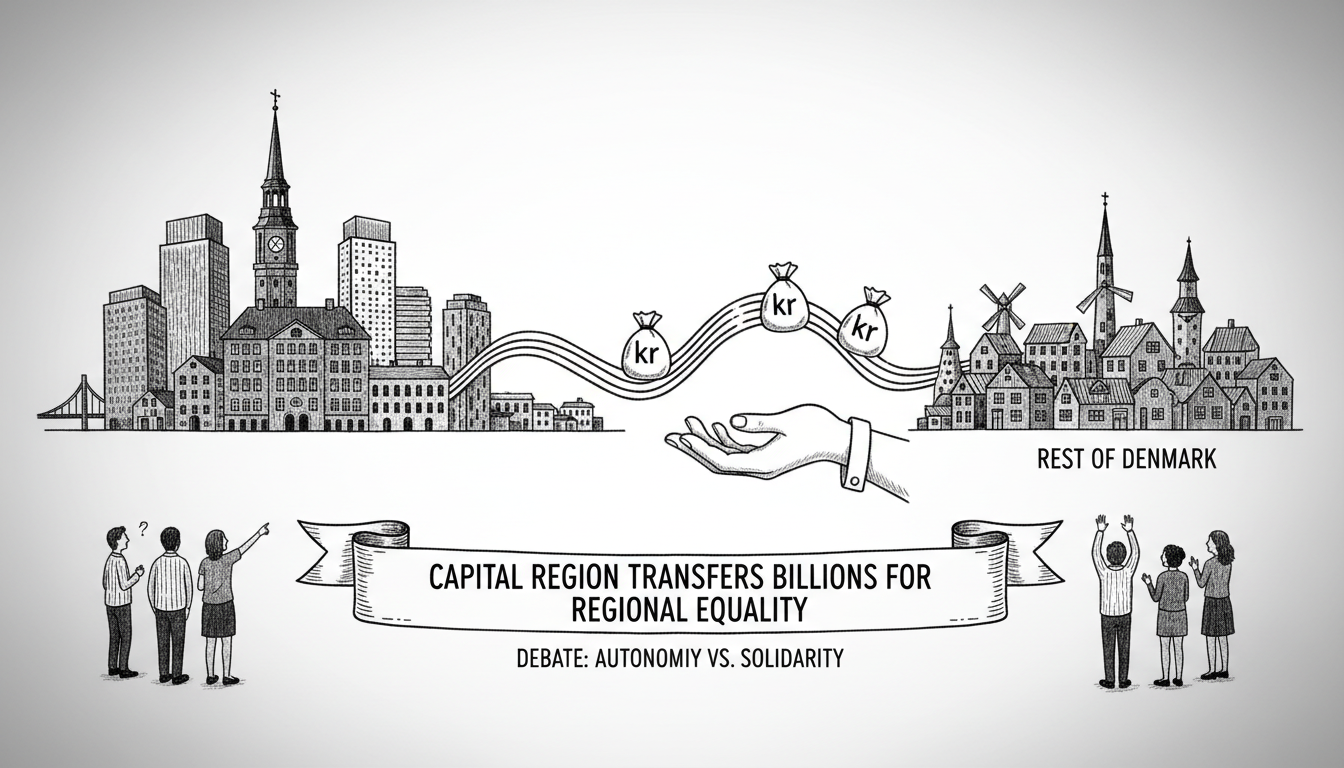Several wealthy municipalities in Denmark's capital region are sending billions of kroner to other parts of the country. Gentofte pays substantial sums. Frederiksberg contributes significantly. Rudersdal also transfers funds. Copenhagen makes major payments too.
These municipalities collectively transfer approximately 19 billion Danish kroner from their local budgets. The money moves from the capital area and eastern Jutland to municipalities across Denmark. This redistribution system represents a fundamental feature of Danish municipal finance.
Denmark operates a comprehensive equalization scheme between municipalities. Wealthier areas support regions with weaker tax bases. The system aims to ensure comparable public services nationwide. All Danish citizens should receive similar quality services regardless of their location.
This financial transfer impacts local budgets significantly. Receiving municipalities gain resources for schools, healthcare, and infrastructure. Contributing municipalities have less funding available for local projects. The arrangement creates ongoing political debates about fairness and efficiency.
International readers should understand this reflects Denmark's strong welfare state principles. The country prioritizes regional equality over local financial autonomy. Similar systems exist in other Nordic countries like Sweden and Norway.
The current transfers highlight persistent economic disparities between regions. Urban centers generate more tax revenue than rural areas. The system attempts to balance these natural economic differences.
Some critics question whether the transfers reduce incentives for economic development. Supporters argue they maintain social cohesion across Denmark. The debate continues as municipalities prepare their annual budgets.
Expats living in contributing municipalities might notice higher local taxes or fewer services. Residents in receiving areas benefit from improved facilities and programs. The system affects daily life throughout Denmark.
These financial flows have operated for decades in various forms. The specific amounts change yearly based on economic conditions. The fundamental principle of regional solidarity remains constant in Danish politics.
Municipal finances in Denmark operate under strict national guidelines. Local governments provide most welfare services despite limited tax autonomy. This creates inherent tension between local needs and national priorities.
The substantial transfers from capital region municipalities demonstrate Denmark's commitment to regional equality. The system represents a political choice favoring nationwide service standards over local financial independence.
